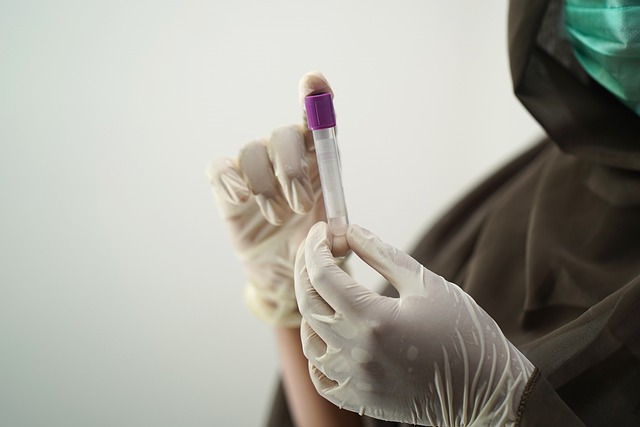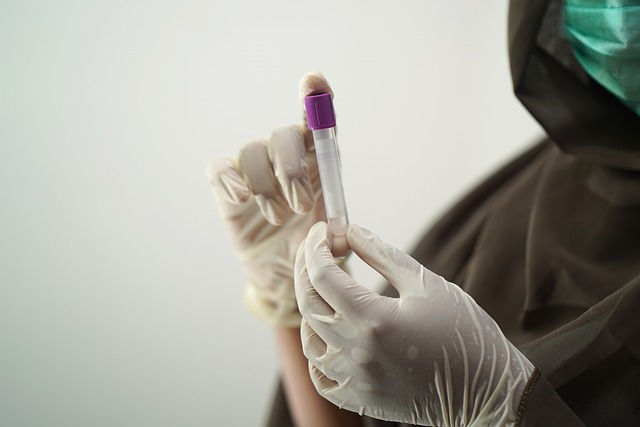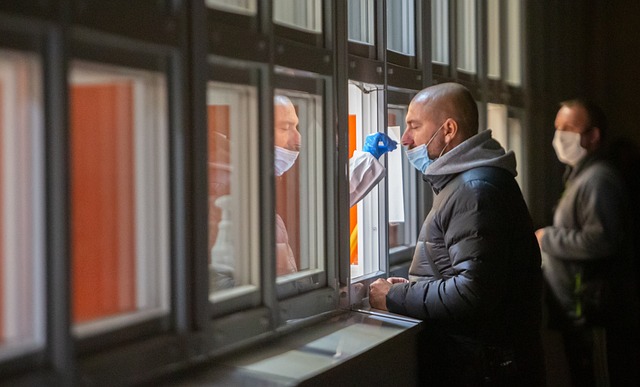In the UK, individuals can conveniently monitor their testosterone levels with a home testosterone blood test kit. These kits are designed for easy finger-prick blood sample collection, accompanied by clear instructions and CE-marked for safety compliance. After sampling, the securely packaged specimen is sent to a UKAS-accredited laboratory for precise analysis, ensuring accurate results. Once the testosterone levels are determined, it's crucial to consult with a healthcare professional for proper interpretation of the data and to discuss any necessary treatments, such as TRT (testosterone replacement therapy), if hormonal imbalances are detected. This service provides individuals with valuable insights into their hormonal health, facilitating informed decision-making within the UK's regulated healthcare environment. The process is designed to be both accurate and private, with results delivered securely online, allowing for timely follow-up care and treatment planning as needed.
Exploring the convenience of home health monitoring, this article sheds light on the process and significance of testosterone blood testing for individuals in the UK. With a focus on understanding testosterone blood test kits, navigating the home testing procedure, and interpreting results, we delve into the practical aspects of managing hormonal health from the comfort of one’s own home. Enhance your knowledge about Testosterone Blood Test UK protocols and take charge of your health with our comprehensive guide.
- Understanding Testosterone Blood Test Kits: A Guide for UK Individuals
- The Process of Home Testosterone Testing in the UK: What to Expect
- Interpreting Your Testosterone Levels: Guidance and Next Steps in the UK
Understanding Testosterone Blood Test Kits: A Guide for UK Individuals

For individuals in the UK seeking to understand their testosterone levels, testosterone blood test kits offer a convenient and private means of self-monitoring. These kits are designed for personal use, enabling men to assess their hormonal health from the comfort of their own home. The process begins with a finger-prick sample collection, which is less invasive than traditional venous blood draws. The kit typically includes everything necessary for this process, such as lancets, sterile gauze, and instructions that guide you through each step. Once the sample is collected, it must be sent to an accredited laboratory for analysis, ensuring accurate results.
Upon purchasing a testosterone blood test kit in the UK, it’s crucial to familiarise oneself with the provided instructions and safety information. The kit should be CE marked, indicating compliance with European health and safety standards. Additionally, the lab partnered with the kit manufacturer should hold certifications from organisations such as UKAS (United Kingdom Accreditation Service), ensuring that the results are both reliable and medically relevant. After receiving your results, it’s advisable to consult with a healthcare professional to discuss any findings or necessary treatment options. This consultation is vital for interpreting your testosterone levels within the context of your overall health, as well as for devising an appropriate course of action if treatment is needed.
The Process of Home Testosterone Testing in the UK: What to Expect

In the UK, individuals seeking to monitor their testosterone levels have the option of conducting a testosterone blood test from the comfort of their own home. This process begins with ordering a home testing kit from a reputable provider, which typically includes everything needed for the test—sterile lancets, lancing devices, gauze, and comprehensive instructions. Upon receipt, follow the provided guidance to obtain a blood sample from a fingertip. The procedure is designed to be straightforward, minimising discomfort and ensuring accuracy. After collecting the sample, it must be sent promptly to an accredited laboratory for analysis. The kit usually comes with pre-paid packaging, simplifying this step.
Once the laboratory receives the sample, the process involves a series of precise biochemical assays to measure the concentration of testosterone in the blood. Results are then interpreted by qualified medical professionals who provide an accurate assessment of your hormonal status. In the UK, home testosterone testing is regulated to ensure high standards of accuracy and privacy. Patients receive their results through a secure online portal, allowing for discreet review of their health data. This service empowers individuals to proactively manage their health, providing valuable insights into potential hormonal imbalances or conditions such as hypogonadism. With the rise of telemedicine, these test results can also be easily shared with healthcare providers for further evaluation and treatment planning if necessary.
Interpreting Your Testosterone Levels: Guidance and Next Steps in the UK

In the UK, understanding your testosterone levels through a testosterone blood test is a straightforward process that begins with a consultation with a healthcare provider. This consultation is crucial to determine whether a testosterone test is necessary and to interpret the results accurately. Once the blood sample is collected, typically from a fingertip prick or a venous sample taken at a clinic or home visit by a qualified professional, the testosterone levels are measured in nanomoles per litre (nmol/L). The reference range for total testosterone in adult men in the UK is generally considered to be between 8.5 and 29.6 nmol/L, while for women, it can vary more widely, with a normal range typically from 0.5 to 2.1 nmol/L. Interpreting these levels requires an understanding of individual health factors, age, lifestyle, and symptoms that may be present.
If testosterone levels are found to be low or outside the expected range, it is important to discuss this with a healthcare provider, as there are various treatments available in the UK, including testosterone replacement therapy (TRT). This therapy can help manage symptoms associated with low testosterone, such as fatigue, decreased libido, and mood changes. It is also essential to explore the underlying causes of imbalances, which may include hormonal disorders, chronic illnesses, or lifestyle factors like obesity, stress, or poor diet. After the initial assessment and diagnosis, healthcare providers will guide individuals on the next steps, which may involve regular monitoring of testosterone levels and adjustments to treatment as necessary to maintain optimal health and wellbeing.
In conclusion, home testosterone blood testing represents a significant advancement for individuals in the UK seeking to understand their hormonal health. With the comprehensive guide on understanding testosterone blood test kits, the clear outline of the process, and the advice on interpreting results, men now have a reliable tool at their fingertips. This accessible approach not only empowers personal healthcare decisions but also facilitates early intervention where necessary. For those looking to monitor their testosterone levels in the privacy and convenience of their own home, Testosterone Blood Test UK services stand as a testament to modern medical innovation and its potential to revolutionise health management.
